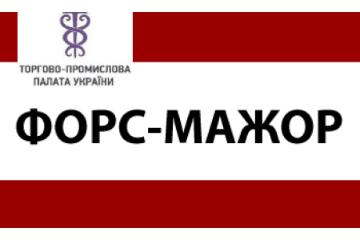
The Ukrainian Chamber of Commerce and Industry (“CCI of Ukraine”) has determined that the military aggression of the Russian Federation against Ukraine, which led to the declaration of a state of siege from 05:30 on 24 February 2022 for 30 days, is to be considered a situation of force majeure. Our Dutch contract law lawyers are currently receiving many enquiries regarding business transactions with Ukrainian companies and also regarding the further consequences for the supply chain within the manufacturing industry. The classification of the situation as a case of force majeure for Ukrainian companies by the Ukrainian Chamber of Commerce and Industry is understandable. However, when considering the interpretation of the force majeure clause between the parties, the commercial contracts concluded must also be taken into account. This blog serves to provide a brief overview of the current situation and how it should be assessed against the background of existing trade agreements.
What is force majeure?
Force majeure occurs when there is a breach of contractual duty that is not attributable to the debtor, in this case the company in Ukraine. This is the case if the breach of duty is not the fault of the debtor and does not fall within the debtor’s sphere of risk. Since many organizations and companies in Ukraine are directly affected by the war, they have problems fulfilling their trade contracts. For example, many are currently unable to manufacture or distribute products, act as commercial agents or operate a franchise concept. Supply agreements are also currently difficult, if not impossible, to fulfil. This includes the manufacture of products (especially in agriculture), agreed delivery times and other contractual provisions such as guarantees.
In the event of force majeure, a contracting party may have breached a contractual obligation, but not culpably. This means that there is no entitlement to damages or compliance with delivery deadlines. The Ukrainian Chamber of Commerce and Industry (“CCI of Ukraine”) now estimates the force majeure situation to last for at least 30 days, although an extension of this period would not be surprising either.
THE UKRAINIAN CHAMBER OF COMMERCE AND INDUSTRY (“CCI OF UKRAINE”)
In view of the above, the Ukrainian Chamber of Commerce and Industry confirms that these circumstances are exceptional, unavoidable and objective from 24 February 2022 until their official end. This applies to companies and/or natural persons who have concluded contracts, separate tax and/or other obligations, the performance of which has been carried out in accordance with the terms of the contract, as well as statutory or other regulations. In cases where the service cannot be provided within the agreed period of time due to the war, the classification as force majeure shall apply.
FORCE MAJEURE CLAUSES IN COMMERCIAL CONTRACTS
The sanctions imposed by the European Union, the United Kingdom and the United States affect trade contracts. Regardless of the opinion and action of the Ukrainian CCI, careful consideration should be given to how trade contracts are structured with your Ukrainian trading partner (or with any subsequent party in the supply chain affected by the sanctions and trade barriers as a result of the situation).
INTERPRETATION OF FORCE MAJEURE CLAUSES IN INTERNATIONAL TREATIES
The way force majeure clauses are structured determines whether they can be successfully invoked. If such a clause is successful, a contracting party may be able to (temporarily) terminate or dissolve the contract, be released from performing some or all of its obligations under the contract, or have the right to suspend performance or demand an extension of the performance period.
In this case, the interpretation and thus the intention of the party is decisive. In practice, what the parties have agreed to on paper is usually followed. The invocation of a force majeure clause is expressly not about getting out of a bad commercial contract and using this trump card as a convenient argument. If, applying the above rules of interpretation, the force majeure clause does not cover the circumstances you face, an appeal to it will not succeed.
DO WAR AND SANCTIONS CLASSIFY AS FORCE MAJEURE IN THE LEGAL SENSE?
Many commercial contracts often refer to the term “war” and that this is a reason to invoke force majeure. Strictly speaking, the question then arises as to whether there is war. As is known from the situation between Ukraine and Russia, both countries have a different interpretation of the conflict. For instance, Russia has not made a declaration of war, and the question arises whether the current situation can be classified under such a (standard) formulation. Much may depend on the terminology chosen in the trade agreement. Experience shows that little or no thought was given to this at the time of contracting (we have seen this before with the Covid 19 issue in contracts). If you are doing business with Ukraine (or, of course, other countries), you should think about including “conflict” or “hostilities” or, if appropriate, “peace mission” in your contract.
The issue of sanctions is in some ways more complex. It is not often listed in commercial contracts as a reason for force majeure, but it could well be one of them. This is also a matter of each individual agreement. It is good to know that the contracting party will check whether the inability to perform is the consequence of the situation in question.
Nevertheless, general law often provides a solution, at least under Dutch law. The interruption of your supply chain may also be specifically covered or fall under more general force majeure clauses that are common in commercial contracts. In addition, the Dutch Civil Code also contains a general force majeure provision that can give you a thick skin.
LAWYER SPECIALISING IN INTERNATIONAL CONTRACTS AND FORCE MAJEURE
If you would like advice from a lawyer specializing in international contracts and force majeure, please do not hesitate to contact us. We advise international companies on the amendment of commercial contracts, their performance or their temporary non-performance, for example due to force majeure. The provisions in your own commercial contract are also relevant to the question of whether and for how long obligations can be suspended. If you have any questions, please contact Remko Roosjen, a lawyer specializing in contract law.







